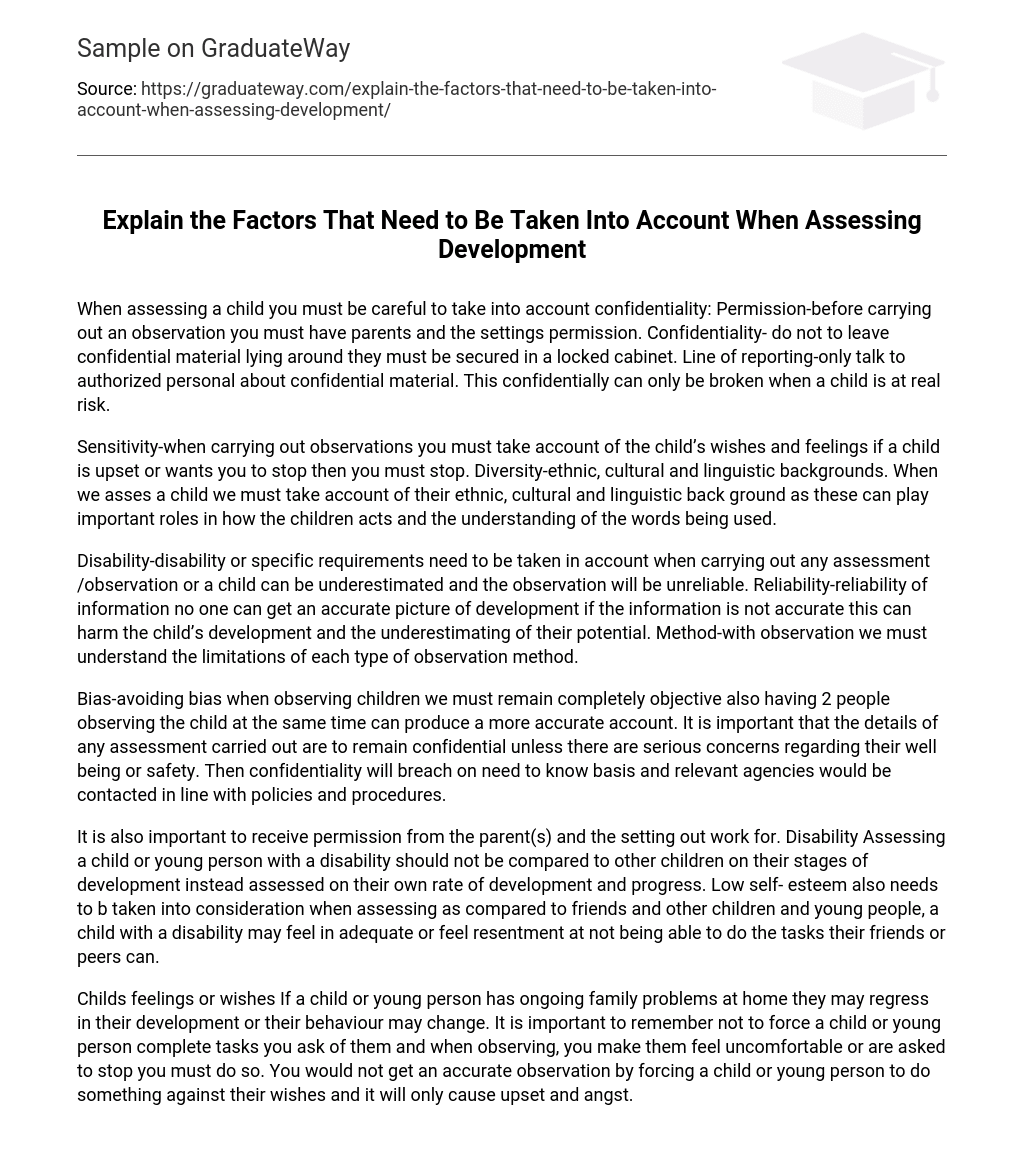When assessing a child you must be careful to take into account confidentiality: Permission-before carrying out an observation you must have parents and the settings permission. Confidentiality- do not to leave confidential material lying around they must be secured in a locked cabinet. Line of reporting-only talk to authorized personal about confidential material. This confidentially can only be broken when a child is at real risk.
Sensitivity-when carrying out observations you must take account of the child’s wishes and feelings if a child is upset or wants you to stop then you must stop. Diversity-ethnic, cultural and linguistic backgrounds. When we asses a child we must take account of their ethnic, cultural and linguistic back ground as these can play important roles in how the children acts and the understanding of the words being used.
Disability-disability or specific requirements need to be taken in account when carrying out any assessment /observation or a child can be underestimated and the observation will be unreliable. Reliability-reliability of information no one can get an accurate picture of development if the information is not accurate this can harm the child’s development and the underestimating of their potential. Method-with observation we must understand the limitations of each type of observation method.
Bias-avoiding bias when observing children we must remain completely objective also having 2 people observing the child at the same time can produce a more accurate account. It is important that the details of any assessment carried out are to remain confidential unless there are serious concerns regarding their well being or safety. Then confidentiality will breach on need to know basis and relevant agencies would be contacted in line with policies and procedures.
It is also important to receive permission from the parent(s) and the setting out work for. Disability Assessing a child or young person with a disability should not be compared to other children on their stages of development instead assessed on their own rate of development and progress. Low self- esteem also needs to b taken into consideration when assessing as compared to friends and other children and young people, a child with a disability may feel in adequate or feel resentment at not being able to do the tasks their friends or peers can.
Childs feelings or wishes If a child or young person has ongoing family problems at home they may regress in their development or their behaviour may change. It is important to remember not to force a child or young person complete tasks you ask of them and when observing, you make them feel uncomfortable or are asked to stop you must do so. You would not get an accurate observation by forcing a child or young person to do something against their wishes and it will only cause upset and angst.





